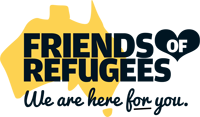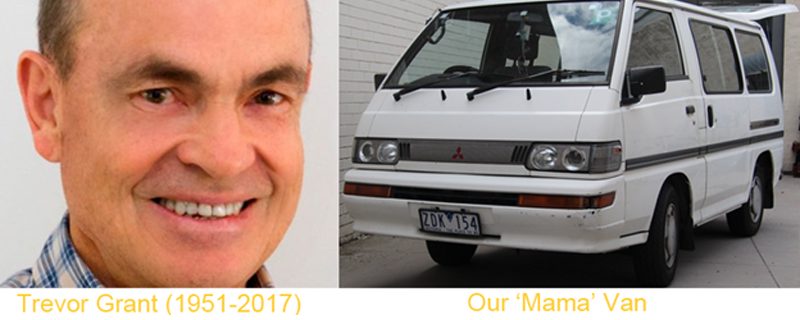In 2012 Trevor Grant and Sri Samy, then members of the Tamil Refugee Council, were dismayed to find many people seeking asylum from various ethnic backgrounds living in absolute poverty in the suburbs of Melbourne, without even basic household items such as beds or a fridge. They found pregnant women and families with children sleeping on bare floors and living in overcrowded housing because they could not afford to pay rent. Many were even going without enough food to eat in Greater Dandenong, an area that hosts 40% of people seeking asylum in Victoria, and its surroundings. In response to Trevor’s newspaper article highlighting the situation of an Iranian pregnant mother sleeping on the floor for months because they could not buy a mattress, more than 450 offers of furniture donations came from people all around Australia.
Trevor and Sri approached existing agencies and politicians to highlight the situation of people seeking asylum and living on limited income support with no rights to work, who were living in extreme poverty in Australia. However, funding cuts meant that the existing community organisations were not in a position to take on the extra demands of furnishing 4-5 homes of daily new arrivals, and mainstream politicians did not care. But Sri, like many other concerned Australians, could not walk away and ignore people going hungry and sleeping on the bare floors, particularly when she knew there were so many in the community willing to help people in need if only they knew how to or had an opportunity to do so.
So FRIENDS OF REFUGEES (FOR) was formed to pass on the good will of the donors to desperate people needing help. The Dandenong Benevolent Society lent their Ute two days a week for six months, as FOR was reliant on trailers and a very old van generously donated by Vasanthan Anantharajah. The Uniting Church of Springvale supported the group with Public Liability and Volunteer Insurance until FOR was incorporated as a not for profit Association.
Up until then, the organisation had stored donated goods in 11 private garages and were running support programs out of private residences and three different community organisations like the Dandenong Neighbourhood House, Urban Neighbours Of Hope (UNOH) and The Cornerstone in Dandenong. The operation model was very difficult to run due to the logistics of a very busy work load. So Sri Samy leased the organisation’s drop in centre and warehouse in Dandenong in her name because she could not find anyone else who would take such a big financial risk with no core funding to support the programs and running costs.
All of FOR’s programs now run under one roof at their leased community house. Building a charity doesn’t happen overnight or without support. Jobs were quit and corporate careers are put on hold for ‘the greater good’.
Prior to the incorporation of FRIENDS OF REFUGEES in 2014, with support from the generous Australian community, Sri financed and managed the FOR programs and was working voluntarily seven days a week delivering food, goods and warmth with the help of several asylum seeker friends and Australian volunteers. One refugee, Donstan Pillai, volunteered full time until he got his work rights. These days, Sri still volunteers 5-6 days a week, oversees programs and manages FOR, but, thankfully, now has a lot of added support from generous volunteers, family, friends, and acquaintances.
The organisation has now outgrown its current premises and Sri is looking to move to a bigger space to continue its work and treat people with dignity. Once again, however, limited funding and donations means she has to lease the new bigger premises in her name again and take more financial risks. But Sri believes that she has the hope, strength and courage to continue this important work to help people who are falling through the service gaps, will you join her in giving HOPE to people who have nowhere else to go?
FRIENDS OF REFUGEES continues to be an independent, voluntary organisation, relying on donations of goods and funds to provide support to asylum seekers living in our community and hence in a unique position to advocate for the human rights of people seeking asylum without the pressures from the government or the private sector.

